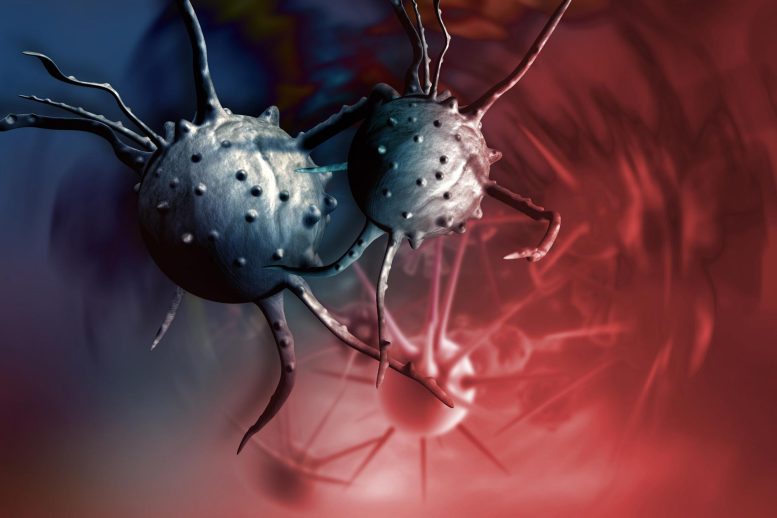Promising Anticancer Drug Unveiled in Groundbreaking Discovery

A novel study has pioneered a fresh targeted therapy aimed at the KRAS G12D protein, an integral aspect in many aggressive cancers. The pharmacological compound, known as KRAS Binder-456, has manifested significant tumor growth retardation, hence offering a promising approach to treating pancreatic, lung, and colon cancers.
Directed by Saïd Sebti, Ph.D., from the laboratory at the VCU Massey Comprehensive Cancer Center, a team of scientists has innovatively developed a targeted therapy that focuses on the KRAS protein, which is behind some of the most fatal human cancers, like pancreatic, lung, and colon tumors.
Published in Cancer Research Communications, their study indicates that an innovative inhibitor drug could be utilized to target KRAS G12D, a subset of the infamous cancer-driving KRAS gene. This research was a collective effort of scientists from multiple prestigious cancer centers, including three National Cancer Institute-designated cancer centers (Moffitt Cancer Center, Montefiore Einstein Comprehensive Cancer Center, University of Florida Health Cancer Center) and the Cancer Center at Illinois.
"This discovery is a significant progress in our war against some of the most aggressive types of cancer," said Sebti, the associate director for basic research and the Lacy Family Chair in Cancer Research at Massey. "Our collaborative endeavor represents a breakthrough in the advancement of targeted therapies against KRAS-driven cancers such as pancreatic cancer."
For this precise study, Sebti's team explored a library of compounds in partnership with the Cancer Center at Illinois to find drugs that bind themselves to KRAS and suppress it to prevent it from causing cancer. The most potent drug they identified through this process was KRAS Binder-456 (KRB-456). This drug was examined by Sebti and his team to understand how it works biologically. They proved that KRB-456 significantly inhibits growth in mice of mutant KRAS-addicted tumors that originated from pancreatic cancer patients who hadn't responded to, or relapsed after, conventional chemotherapy or radiation therapy.
Sebti plans further research to test this drug in combination with standard therapeutic options to investigate its potential as a beneficial addition to cancer treatment or to possibly inspire the development of a more potent or selective drug against KRAS G12D-driven tumors.
"The ultimate goal for every researcher in the field of oncology is to make a substantial difference in the lives of cancer patients. Our progress towards this goal creates enthusiasm, knowing that our work could directly influence those combating this detrimental disease," expressed Sebti, who also serves as a professor in the Department of Pharmacology and Toxicology at the VCU School of Medicine. "KRAS used to be termed the 'undruggable target.' However, we and others have now confirmed that it is druggable. Our ongoing work should hopefully lead to the development of effective drugs for KRAS G12D-driven cancers."
Sebti highlighted that more than 90% of pancreatic cancers, approximately 35% of colon tumors, and about one-fourth of lung tumors possess a mutant KRAS gene.
"The focus is on targeting the mutation, not necessarily the disease," Sebti stated. "We anticipate that our findings will contribute to identifying a therapeutic option that would also be effective for lung and colon tumors having this specific KRAS G12D mutation."
This study builds upon nearly a decade's worth of research conducted by Sebti at different cancer centers, investigating the role of the KRAS gene in cancer development.
Sebti's laboratory at Massey, one of only two NCI-designated cancer centers in Virginia, is committed to cancer biology research and therapeutic interventions. By deploying innovative collaborations and state-of-the-art technology, the lab seeks to decode the complexities of cancer and create novel strategies for successfully treating the disease.




